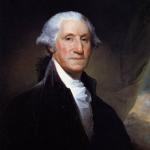“No pleasure, except that which results from a consciousness of having, to the utmost of my abilities, discharges, the trusts which have been reposed in me by my Country, can equal the satisfaction I feel from the unequivocated proofs I continually receive of its approbation of my public conduct… my wishes that bounteous Providence will continue to bless and preserve our country in Peace and in the prosperity it has enjoyed, will be warm and sincere; and my attachment to the Society on which we are members will dispose me always to contribute my best endeavors to promote the honor and interest of the Craft.”
So as we look upon the Masonic Character what do we see? From the writings of Revere and Washington we see a man dedicated to serve and protect others. A True Mason understands how the ideals of the Craft can change the character of not only an individual, but also a nation. If the Founding Fathers had not held these virtues and ideals so close to their hearts, in what kind of a nation would we live? Would they have proclaimed themselves rulers to satisfy only their own self-interests? Would they have exploited the people to benefit only themselves? It is a scary thought to think that the American principles could have never existed. But it was the belief of the Founding Fathers that the virtues and ideals of the Masonic institution were a intricate part of the destiny of mankind and the will of God. So when we as Masons lost sight of those truest of virtues, when we join a group for only a lapel pin, or we step outside the length of our obligation, let us remember that the virtues we enact are a central part of God’s plan to liberate mankind from the darkness into the light of individual duty and justice. Let us learn from the example of the Founding Fathers, who resisted all temptation to oppress and exploit, but to remain steadfast to the virtues of the craft and to the obligation that makes good men better.
~JEF 32o. Excerpted from
http://www.midnightfreemasons.org/2012/07/masonic-philosophy-of-george-washington.html
 Caption this Meme
Caption this Meme